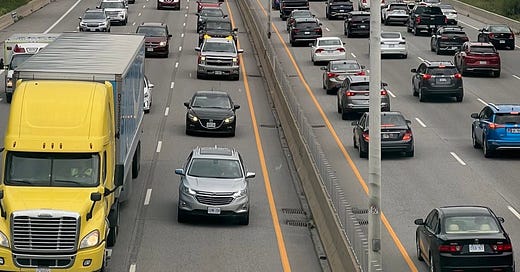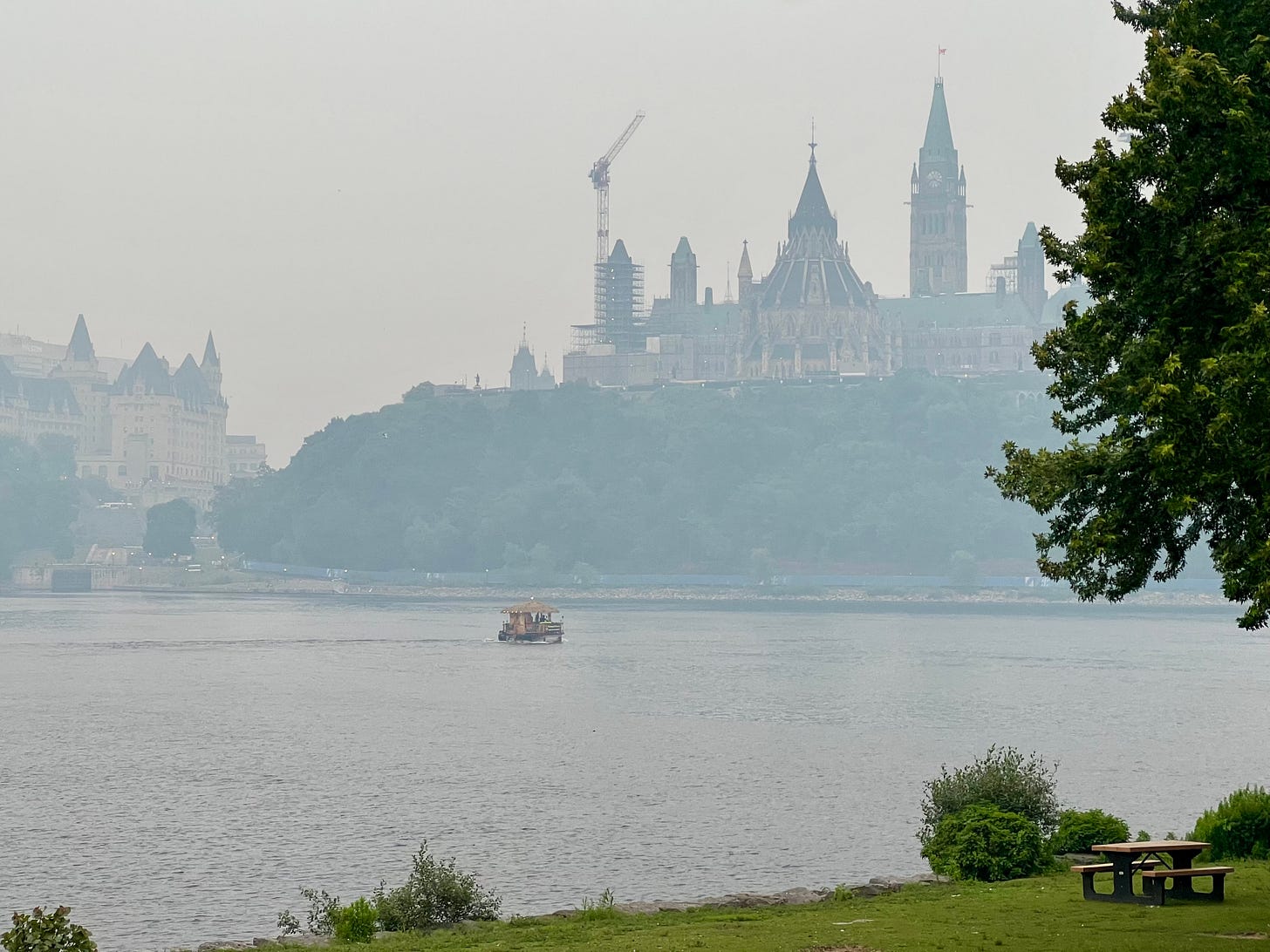Will Ottawa Council Do What It Needs to Do for Climate Action?
"Balance" is a recipe for inaction.
The City of Ottawa’s Energy Evolution climate plan can put $12 billion over the next 30 years back into the pockets of Ottawa households, businesses, organizations and City Hall itself. Together, the municipal government and the wider community would spend $32 billion to transition to a net zero economy, and save $44 billion in the process.
It’s City Hall’s plan for itself and for the community. But will City Hall do what is required to make it happen?
Below is the list of the actions that Energy Evolution requires from both the City and the wider community.1
When I look at those actions, I’m concerned that the Mayor’s ideology of “balance” will prevent Council from doing what needs to be done to reduce emissions — and save us all money.
Let’s look at those required actions, and consider where Council is likely to act or not.
Community actions
96% of all of Ottawa’s emissions come from the “community” — households, businesses and other organizations. Basically, everyone and everything other than City Hall. Below is a list of what the community needs to do to get emissions to net zero by 2050.
Shift to electric vehicles
Electrify personal vehicles
Electrify commercial vehicle fleets
Shift to energy efficient buildings
Retrofit homes to be energy efficient through, for example, installing heat pumps and rooftop solar, and upgrading windows and insulation
Build new homes to higher energy efficiency standards
Retrofit apartment buildings to be energy efficient
Retrofit commercial, office and industrial buildings to be energy efficient
Increase renewable energy production
Increase solar production, through rooftop PV installations and through commercial generation facilities
Allow commercial wind power generation in Ottawa
Increase hydropower production
Use battery storage to balance out renewable energy production and use
Implement a district energy system near the Parliamentary precinct
City Hall corporate actions
4% of total Ottawa emissions come from City Hall operations. Below is what City Hall needs to do to reduce those corporate emissions.
Reduce emissions from City operations
Electrify the City fleet of vehicles
Retrofit municipal buildings to be energy efficient
Electrify transit buses
Municipal infrastructure, policies and services
The City is also required to build out the infrastructure, enact the policies and provide the services that allow the community to achieve lower emissions.
Land use and planning
Reform zoning to create greater density and prevent future sprawl
Put in place new high performance building standards
Facilitate transportation mode shift
Reduce car trips through measures that could include: increasing commercial parking rates, ending road expansion projects, implementing congestion pricing, and creating EV-only or car-free zones.
Increase transit usage through investing in new infrastructure and improved operations.
Increase walking and cycling through constructing a complete active transportation network.
Reduce emissions from waste
Divert organics and recyclables out of the waste stream
Convert methane emissions from landfills into renewable natural gas
Commercialize wastewater heat
Enable renewable energy production
Expand solar and hydropower production
Permit wind turbine farms and battery storage within Ottawa boundaries
But will the City act?

It’s fair to assume that City Hall will take action to reduce its “corporate” emissions. City Hall has to replace vehicles regularly, so they can gradually switch their fleet over to electric. Building retrofits create energy cost savings, and some retrofits have a very quick payback period. And we already have a deal in place with the Canada Infrastructure Bank to finance the transition of OC Transpo to electric buses.
So the 4% of emissions that come from City Hall operations should be pretty straightforward.
But what about the infrastructure, policies and services the municipality needs to provide, for the community to be able to do their part?
That’s where ideology gets in the way.
Sustainable transportation
Transportation accounts for about a third of all emissions in Ottawa. Accordingly, climate action requires that Council follow through on its Official Plan objective that 50% of all trips be taken by transit, walking, biking or car-pooling.
But this Mayor’s idea of “balance” is to de-prioritize sustainable transportation. Over 2 budgets, he has demonstrated an unwillingness to invest in transit or cycling. He has also demonstrated an unwillingness to slow down road building, price commercial parking at its full cost or taken any other measures that would incentivize people to look for alternatives to car trips.
Waste
For climate action, we need to throw out less waste and divert organics out of the waste stream. This Council had a decision to make on reducing household waste, but did little more than punt the issue down the road for a future Council to manage.
Energy
For climate action, Ottawa needs to increase the share of renewables in our energy production. That means more solar, wind and hydro. But will this Council encourage renewables? For example, will this Council give the go-ahead to install wind turbines in our rural areas, or will it cave to the anti-wind movement?
Heads in the sand
When you look at what needs to be done for climate action, I’m concerned that the majority of Councillors, including the Mayor, are not up to the task.
Maybe they don’t understand the costs and benefits of climate action. Maybe some deny that it’s even required. Maybe they think climate action is someone else’s job.
As our winter melts away two months early and as our summers risk becoming a season of smoke and fire, whatever the reason for Council inaction, it’s not the leadership this city needs.
Adapting to climate change is not part of Energy Evolution’s mitigation plan for getting the city to net zero emissions. Adaptation is covered in Ottawa’s Climate Change Master Plan.







A year in, it's clear that no progressive leadership can be expected from this Council. Pity, because there was reasonable hope that, this time, sound policy could be supported by a (slim) majority of Council.
To get anywhere, not only does Ottawa need a majority progressive Council, but also a thorough cleaning out of senior staff. How the top job, that of City Manager, was filled speaks volumes. There is no sign of renewal in the major departments either. (Steve Willis left in frustration.)
Work must start now to achieve better results in 2026. Meanwhile, every opportunity should be exploited to impress upon staff and councillors what should happen, even though they won't act upon our advice. But the message needs to be conveyed to the general public.
you've nailed it Neil... again; as someone said at Tuesday's Council mtg. on this " the house is on fire "; I am, like most people, very worried that Ottawa City Council is not up to the task; even Menard's motion didn't go far enough. I can only assume that he didn't go further because he calculated there wouldn't be enough support for a stronger Motion ! yikes : ( that would be kinda like a 'reverse proof' of this ( and all our previous ) Council's regressiveness.